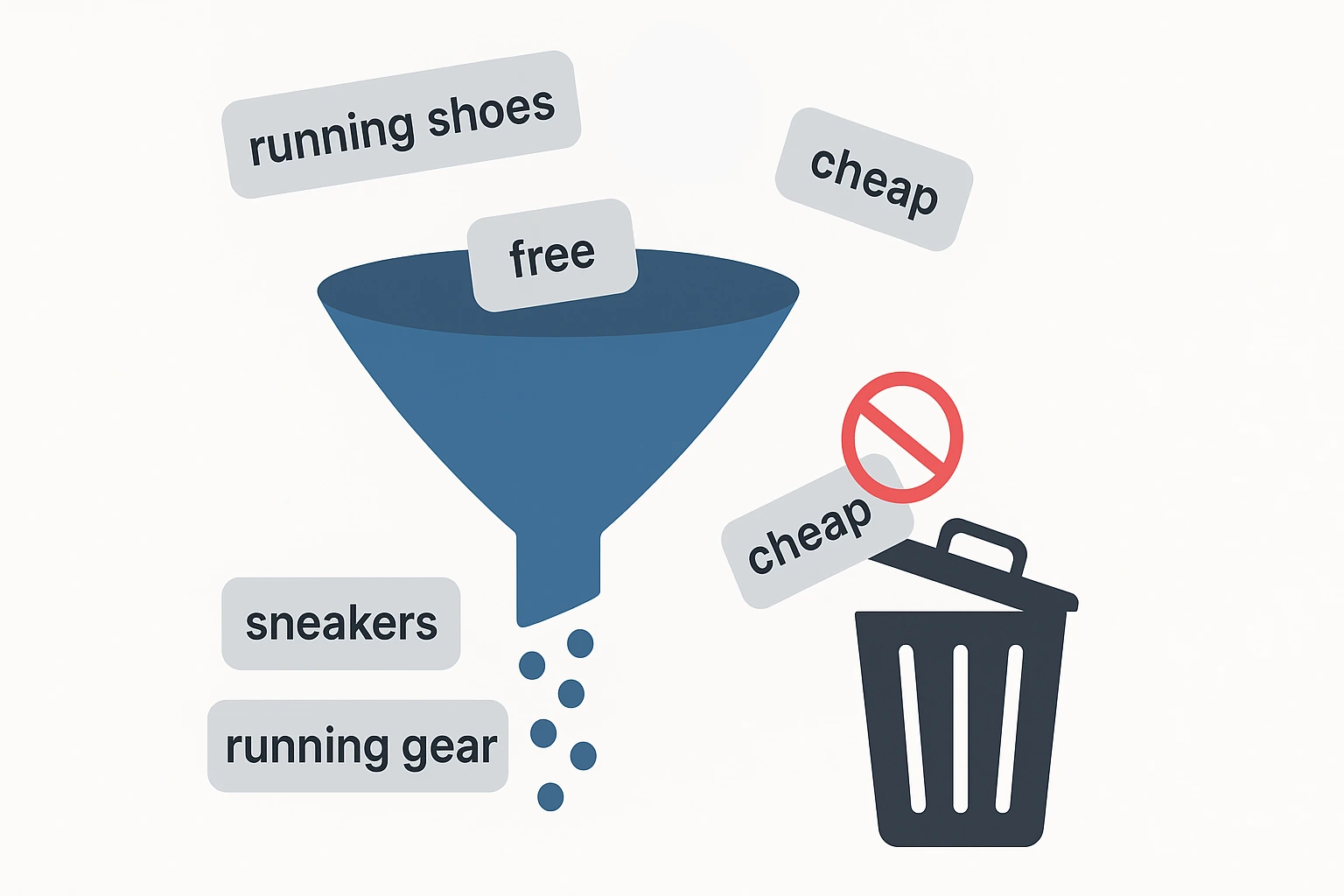Best practice for excluding negative keywords
Introduction
Negative keywords are one of the most underrated tools in your PPC toolbox. They help keep your budget focused, improve conversion rates, and reduce wasted spend. But most advertisers either overuse or underuse them, and both approaches can quietly kill performance.
Let’s walk through why they matter, what the benefits are, how often to use them, and the best practices we swear by at Adregen.
Why negative keywords matter
Search engines are clever… but not that clever. Without direction, they’ll happily show your ads for loosely relevant or outright irrelevant terms. Negative keywords act as guardrails, helping you:
- Avoid wasted clicks
- Improve your click-through rate (CTR)
- Boost conversion rates
- Train smart bidding more effectively
- Stop budget leakage from low-intent traffic
Benefits of excluding keywords properly
Doing this right means:
- Cleaner search term reports
- More efficient use of budget
- Better targeting for your top-of-funnel and bottom-of-funnel campaigns
- Stronger learnings over time for machine learning algorithms (especially in SMART Bidding)
How often should you add negative keywords?
- Weekly for most active accounts.
- Daily for high-spend or launch-phase campaigns.
- Monthly review for static or lower-volume campaigns.
It’s not just about adding them either, it’s about auditing the impact. A healthy PPC account removes underperforming or overly restrictive negatives too.
Best practices for negative keywords
1. Exclude the broadest form of the search
If you only exclude [the cheapest holidays in the uk] on exact match, Google can still serve ads for “cheap uk holidays” or “uk holidays cheapest deals 2025.” Worse yet, you might not even see those terms if they fall outside what Google decides to show you.
Best move?
Exclude “cheapest holidays” as a phrase match. This ensures any search containing that string gets blocked, whether or not Google reveals it in your search term report.
Think of this as future-proofing against hidden search terms.
2. Use a tool to flag hidden matches (like we do)
Search term reports aren’t always honest. You might exclude “cheapest holidays” on phrase match, but when “cheapest holidays in the UK” shows up in your report, it won’t say “Excluded.”
This is misleading, and where most PPC managers get caught out.
At Adregen, we’ve built tools that compare negatives against historical queries to show what should have been excluded but wasn’t marked as such. That means you can confidently measure how much budget is being protected, and make better decisions about future exclusions.
You too could do this with a mixture of Google Sheets, Google Ads scripts and Apps Script, or if you’re confident enough, Google Ads API.
3. Don’t be too strict with SMART bidding
If you’re running Max Conversions or Max Conversion Value, remember that Google sees way more than you do. User history, device signals, browsing behaviour – it’s all baked into the algorithm.
If a search looks slightly off but is still relevant-ish, let it run a little. Negative keywords should be used to block intent, not just weird phrasing.
Our rule of thumb:
Let the data do the decision-making. Allow something to run, everything is innocent until proven guilty with SMART bidding, and once you can safely make the decision, exclude it. Don’t do this prematurely or you could miss out on a future opportunity for growth.
Final thoughts
Negative keywords are powerful, but like any power tool, they can do damage if used carelessly. Follow these best practices, and you’ll protect your budget, train your algorithms more effectively, and uncover more high-intent searches that actually convert.
Want help reviewing your negatives?
We’ve helped clients cut wasted spend by 20–40% just by fixing negative keyword strategy. If you want us to audit your account or implement smarter automation, get in touch today.
